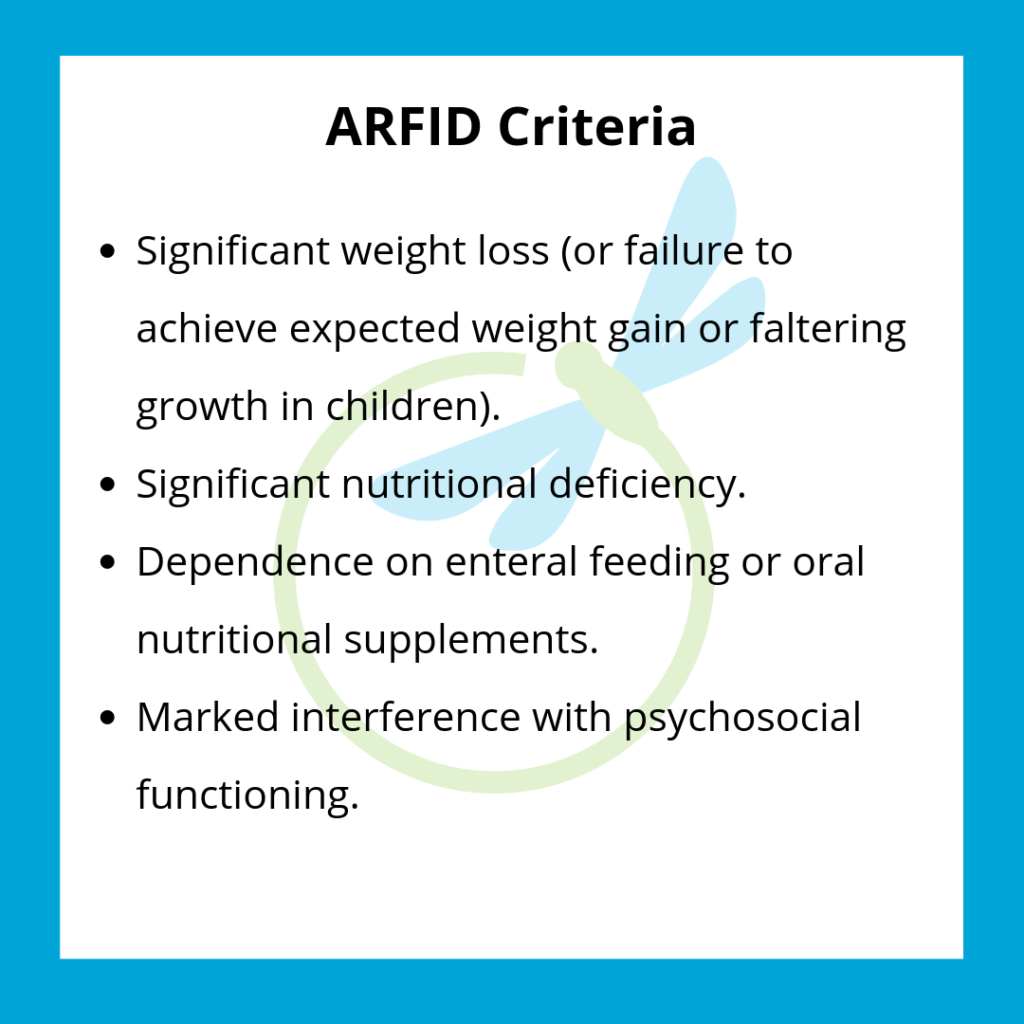Avoidant/Restrictive Food Intake Disorder (ARFID)
Schedule NowWhat is ARFID?
You may have a friend or family member that has a reputation for being a picky eater, but it may be more than just personal preference. Recently added to the Diagnostic and Statistical Manual of Mental Disorders (DSM-V), ARFID, or Avoidant/Restrictive Food Intake Disorder, is atypical eating or feeding which results in malnutrition, weight loss, and/or emotional distress.
ARFID does impact children and may be more prevalent in individuals diagnosed with autism spectrum disorders. Adults are also affected by this disorder, too. ARFID may look different for everyone. Some individuals may avoid certain food groups altogether, while others may have a fear of a particular food, or may even be scared of swallowing, choking, nausea, or vomiting.

The criteria for ARFID, as outlined by the DSM-V, includes:
An eating or feeding disturbance (e.g., apparent lack of interest in eating or food; avoidance based on the sensory characteristics of food; concern about aversive consequences of eating) as manifested by persistent failure to meet appropriate nutritional and/or energy needs associated with one (or more) of the following:
- The disturbance is not better explained by lack of available food or by an associated culturally sanctioned practice.
- The eating disturbance does not occur exclusively during the course of anorexia nervosa or bulimia nervosa, and there is no evidence of a disturbance in the way in which one’s body weight or shape is experienced.
- The eating disturbance is not attributable to a concurrent medical condition or not better explained by another mental disorder. When the eating disturbance occurs in the context of another condition or disorder, the severity of the eating disturbance exceeds that routinely associated with the condition or disorder and warrants additional clinical attention.
Treatment for ARFID
ARFID can be effectively treated. Because ARFID can increase in severity over time and the potential for nutritional deficiencies, treament should not be delayed. The Oasis team has skilled dietitians and therapists with years of experience treating ARFID. Some of the most effective treatments include:
- Nutrition therapy
- Counseling
- Exposure Therapy
- Meal Support Therapy
Ready to Schedule?
Or just need more information? Give us a call at (561) 278-6033 or email Connect@TherapeuticOasis.com

Jestine Argueza, RDN/LDN
Nutrition Therapist
Experienced in the treatment of ARFID and other eating disorders.